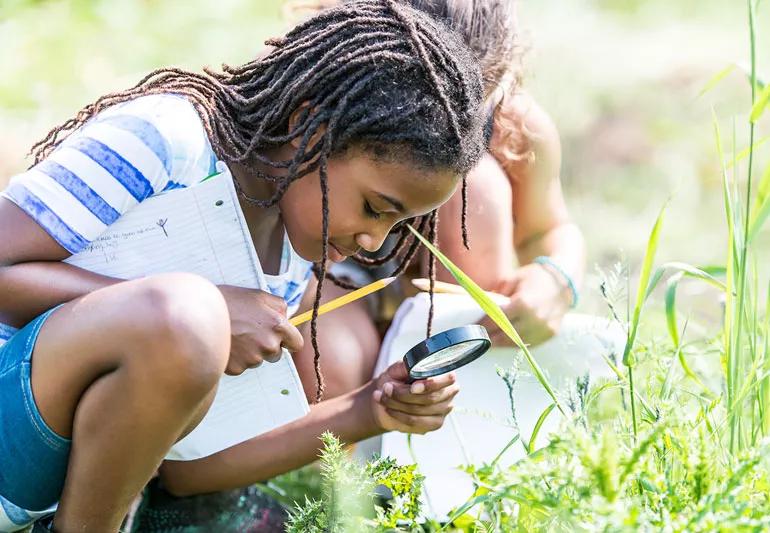Finding a balance between work + play

Image content: This image is available to view online.
View image online (https://assets.clevelandclinic.org/transform/ed783c95-981b-480b-bc60-93e6ba5f36b9/summerSchool-846193310-770x553_jpg)
Girls examining plants outside during summer school class
Summer break brings warm weather, family activities and time to relax and enjoy the outdoors. But for some kids, it can also bring a dreaded activity: summer school.
Advertisement
Cleveland Clinic is a non-profit academic medical center. Advertising on our site helps support our mission. We do not endorse non-Cleveland Clinic products or services. Policy
Between daily worksheets, enrichment packets, test prep or making up an entire course, kids’ stress levels can remain high over the course of the warmer months due to continued academic responsibilities. Pediatrician Richard So, MD, provides the secret to avoiding burnout: finding balance.
“The first piece of advice I always offer to parents is to give your kids a week of summer break off to decompress,” Dr. So says. “During that time, it’s also a good idea to make a ‘Summer Fun’ list of things the whole family can do together.”
Having fun incentives will help motivate your child to get their work done, in order to have time to play. Dr. So suggests adopting a “first, then” model when outlining plans for the day.
“If you tell your child you are going to get them ice cream after they complete their summer work for the day, they are more likely to want to do their work the right way the first time,” he explains. “It’s not bribing your child, but offering positive reinforcement for doing good work.”
Another strategy that adds an element of fun to summer schoolwork is role playing.
“Play ‘School’ and pick a different child or family member to be the teacher for the day,” Dr. So suggests. “You can even incorporate some of your summer bucket list items into learning as field trips, like going to the zoo or reading in the park. Not only is learning more interactive, but the ‘teacher’ for the day is learning through educating the entire group.”
Advertisement
If your child has to attend summer school to earn credit for a failed class, resist the temptation to say “I told you so.” Rather, focus on using positive language as a motivating tool.
“Sometimes kids just learn a different way and need a second time to fully grasp material,” Dr. So says. “Reminding them that they are not stupid, they are not the only one taking the course, and they are allowed to make mistakes as long as they learn from them will boost their desire to learn and do well.”
The “first, then” dialogue is equally as helpful in this setting. Once your child is finished with summer school, check off another item of your “Summer Fun” list—you had a vacation planned anyway!
Advertisement

Sign up for our Health Essentials emails for expert guidance on nutrition, fitness, sleep, skin care and more.
Learn more about our editorial process.
Advertisement
Preschool age is typically between 3 and 5 — but readiness may matter more
Asking questions, creating routines and setting schedules can help get students back on track
All states require DTaP, MMR, polio and chickenpox vaccines — healthcare providers recommend others, too
School can be stressful, even anxiety-provoking — get to the root of the concern and enlist help when needed
A well-balanced lunch should include a protein, whole grain, fruit and vegetables, and a healthy snack
‘Active shooter’ exercises may raise both awareness and anxiety
Focus on a positive mindset, strong study habits and healthy living
Vomiting and fevers are a hard no — other symptoms are a judgment call
Prioritize your health by managing stress, strengthening your social connections and getting quality sleep
Bolsters, blankets, pillows and blocks can offer extra support, stability and comfort
Allergies, postnasal drip, asthma or reflux could be to blame for a cough that won’t quit